As an artist, does one need to be a good person to create good work? I’m a little embarrassed; it seems like a silly question, but it has nagged at me over these many years.
I have always maintained that ‘you are what you eat,’ and I feed myself well. To support the music I create, I spend a lot of time reading, journaling, and drawing. I get outside and garden, take long walks, spend quiet evenings meditating or thinking. I go to art museums, music and theater performances – filling my head and heart with enriched fertile soil to grow the music I compose.
But do my actions – how I treat others – find their way into my music as well? If I am careless or cruel to my partner, children or friends, if I am selfish, self-centered, even narcissistic, will these character traits translate into my music? How does who I am effect my music, possess it, even corrupt it? Crassly put, can bad people write good music?
 There are plenty of examples of badly behaved composers. Gesualdo committed a gruesome murder and mutilation of both his wife and her lover, Beethoven was famously temperamental and more than a bit abusive to his nephew, and Wagner was a fervent anti-Semite. Scriabin was a pathological narcissist who imagined himself a god and Mussorgsky was a raging, out-of-control alcoholic who idealized his addiction. Closer to home, I know many good composers I would rather not spend any time with.
There are plenty of examples of badly behaved composers. Gesualdo committed a gruesome murder and mutilation of both his wife and her lover, Beethoven was famously temperamental and more than a bit abusive to his nephew, and Wagner was a fervent anti-Semite. Scriabin was a pathological narcissist who imagined himself a god and Mussorgsky was a raging, out-of-control alcoholic who idealized his addiction. Closer to home, I know many good composers I would rather not spend any time with.
How can I understand this from my own life perspective? Perhaps it is in the creative process itself that I might find common ground.
When I compose, it is as if I have two lives – one that is music and the other one that is every day. Call it a split personality or a double self, I project myself into this realm, into this voice – my second self. As I wrote in my memoir, Let Your Heart Be Broken,
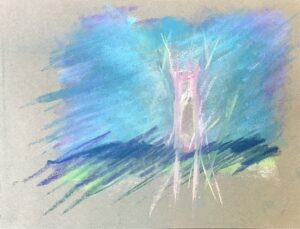 “Without music, I am plain and unremarkable. I shop, eat, dally about, think foolish thoughts, peer into the mirror. I hate, I love, I sleep, I anguish—nothing special. But when focused on writing music, I am a channel, a beam of light – I am a passageway for what must come out. My entire person comes together in a pulse, condensed and absorbed. The work follows me everywhere. I hear it in the bathroom, while I am cooking, as I fall asleep. There is always this murmur, this whisper.” (page 47)
“Without music, I am plain and unremarkable. I shop, eat, dally about, think foolish thoughts, peer into the mirror. I hate, I love, I sleep, I anguish—nothing special. But when focused on writing music, I am a channel, a beam of light – I am a passageway for what must come out. My entire person comes together in a pulse, condensed and absorbed. The work follows me everywhere. I hear it in the bathroom, while I am cooking, as I fall asleep. There is always this murmur, this whisper.” (page 47)
In my composing life lies untethered ground, unhampered by anger, pettiness, and dis–ease. This neither-here-nor-there state becomes a clean slate and a dreamland where all is possible. I can articulate deep feelings of connection and love without encumbrance of my more human emotions. I can turn my night sweats, jealousy and rage into energy and rhythm, dissipating their destructive force. I am, as I compose, a better person, an imagined best.
In this way, I understand how badly behaved composers write good music. In this composing dream-world, they can exist emotionally open, kind and connected. Whereas in daily life, they can be harsh, cruel, mentally unstable and even murderous.
But, honestly, this doesn’t work for me.
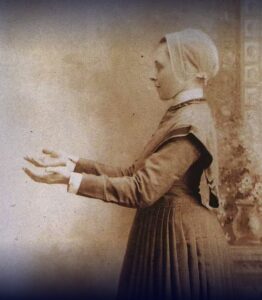 The relationship between my life, who I am and how I behave, and my work is inseparable. There is no slacking off in either regard. I am as flawed as the next person, but it is how I am accountable to and work on those flaws that matters.
The relationship between my life, who I am and how I behave, and my work is inseparable. There is no slacking off in either regard. I am as flawed as the next person, but it is how I am accountable to and work on those flaws that matters.
In the end, I ascribed to the Shaker’s motto, hands to work, hearts to God, where “every part of life is a spiritual manifestation of God – the God within – whether they make furniture or say their prayers” (Let Your Heart Be Broken).
The glue in my life is that I am always working to be the best I can be. My imagined best that I project into my music is my true north.
© Bottle, Tina Davidson, pastel
Read Let Your Heart Be Broken, Life and Music from a Classical Composer
https://www.amazon.com/Let-Your-Heart-Broken-Classical/dp/1633376974
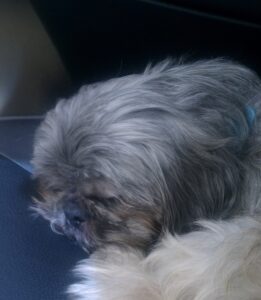 I miss my little dog Max at the oddest times. Not when I look at his collar or his leash laid out next to my bed stand, but in the middle of the night when I absentmindedly reach up to pat the space where he used to sleep. Isabella carefully sleeps down at the bottom of the bed, out of the way of any movement.
I miss my little dog Max at the oddest times. Not when I look at his collar or his leash laid out next to my bed stand, but in the middle of the night when I absentmindedly reach up to pat the space where he used to sleep. Isabella carefully sleeps down at the bottom of the bed, out of the way of any movement.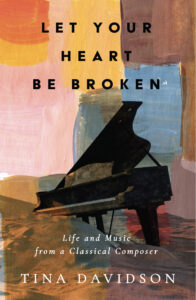 I am reading my memoir, Let Your Heart Be Broken, aloud for the audiobook. This is not an easy thing to do. I have a new respect for the muscles of the lips, mouth and cheek, and where I put my tongue to articulate a word. I am constantly dropping plurals, fumbling over words, or seeing the end of the sentence at the same time I see the beginning, and reordering the words. My engineer often raises his head from my book as he follows along with a look, and even will repeat a fugitive word for me.
I am reading my memoir, Let Your Heart Be Broken, aloud for the audiobook. This is not an easy thing to do. I have a new respect for the muscles of the lips, mouth and cheek, and where I put my tongue to articulate a word. I am constantly dropping plurals, fumbling over words, or seeing the end of the sentence at the same time I see the beginning, and reordering the words. My engineer often raises his head from my book as he follows along with a look, and even will repeat a fugitive word for me. My neighbor, on the other side of the creek, cut down a slender adolescent oak I had been nurturing. In a confusion of where the property line was between our houses, the oak found itself outside of my jurisdiction. So he gleefully chopped it down, and dug up all the roots for good effect.
My neighbor, on the other side of the creek, cut down a slender adolescent oak I had been nurturing. In a confusion of where the property line was between our houses, the oak found itself outside of my jurisdiction. So he gleefully chopped it down, and dug up all the roots for good effect. , religion, education, or just being at the wrong place at the wrong time), break in through the back door or window. No matter how you get in, you are in.
, religion, education, or just being at the wrong place at the wrong time), break in through the back door or window. No matter how you get in, you are in. ars. When I got a commission from the Kronos Quartet, that and my savings allowed me to launch into being able to compose full time.
ars. When I got a commission from the Kronos Quartet, that and my savings allowed me to launch into being able to compose full time. Share your joy.
Share your joy.
 Heave your heart into your mouth – often.
Heave your heart into your mouth – often.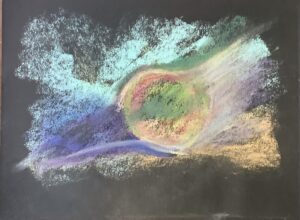
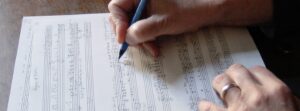 There, right there is the magic – that lift, as if you were about to fly. The upward motion pulls at gravity. I am a kayak, rushing downstream only to hit a rock. As I fly in the air, the suspension seems longer than possible; my heart stops beating for a endlessly long moment – time is distorted.
There, right there is the magic – that lift, as if you were about to fly. The upward motion pulls at gravity. I am a kayak, rushing downstream only to hit a rock. As I fly in the air, the suspension seems longer than possible; my heart stops beating for a endlessly long moment – time is distorted.